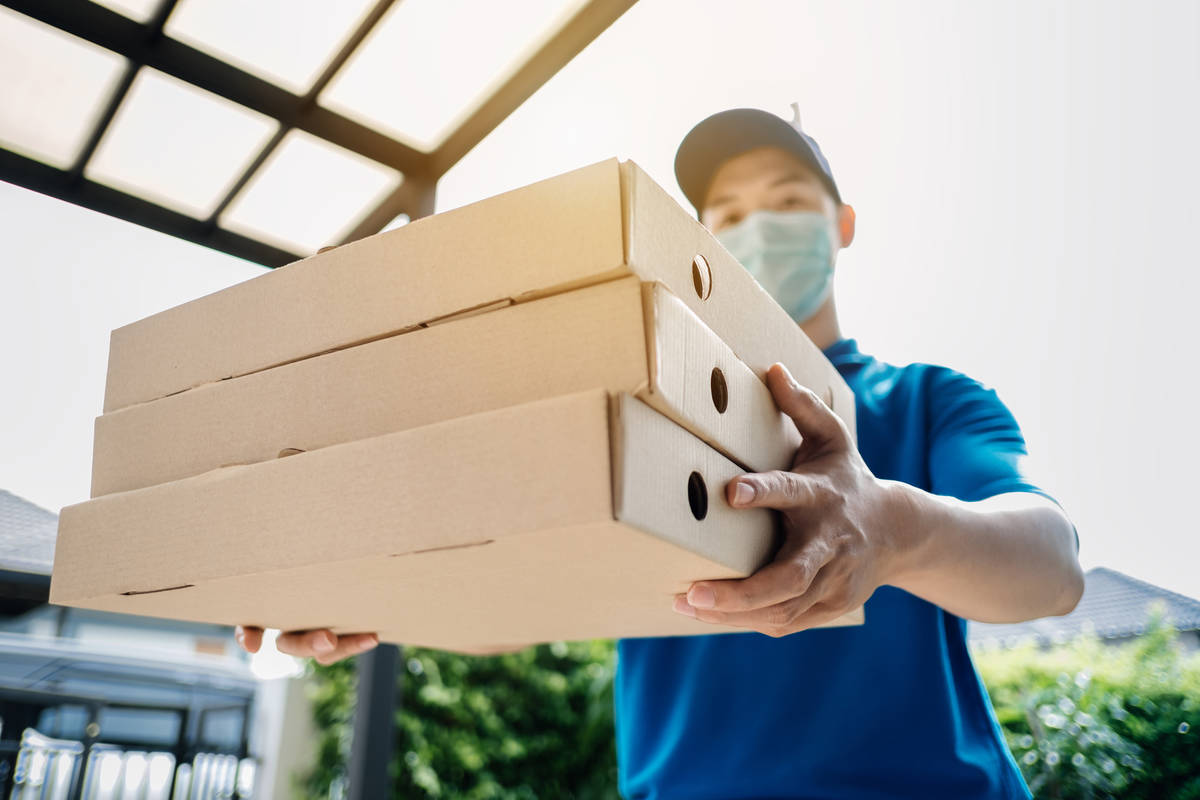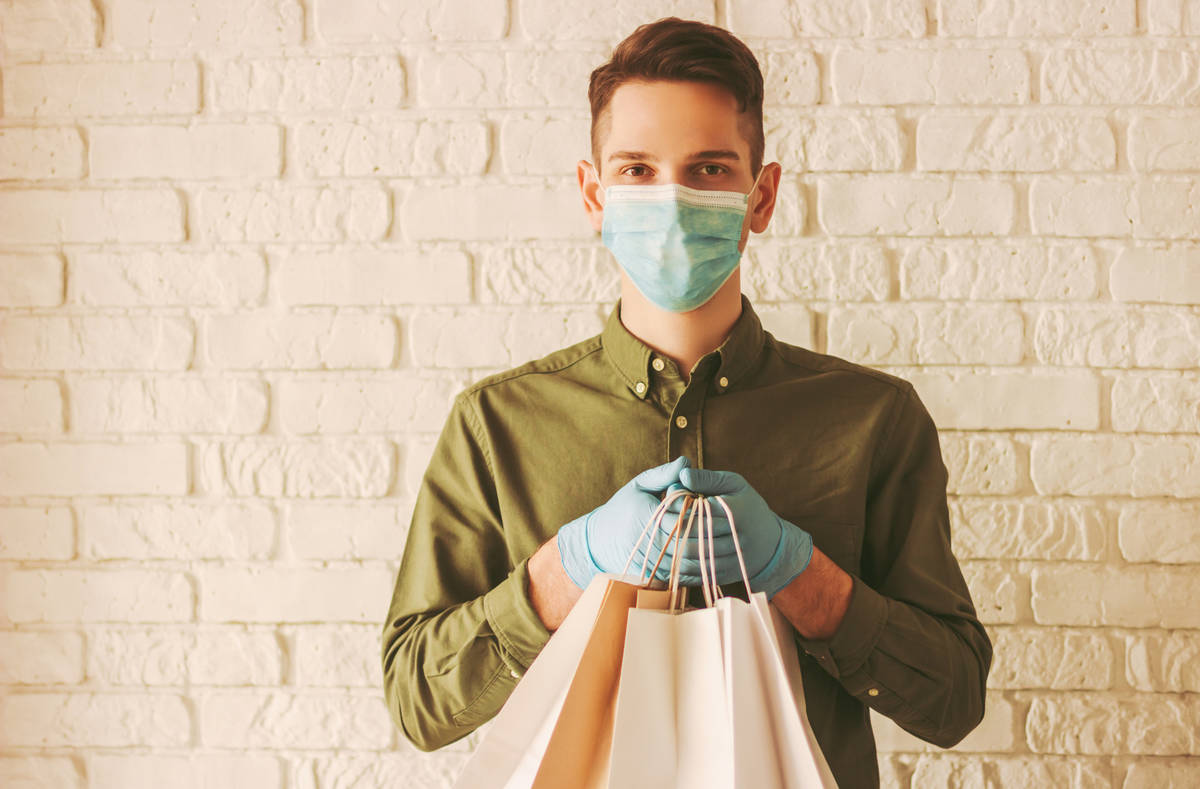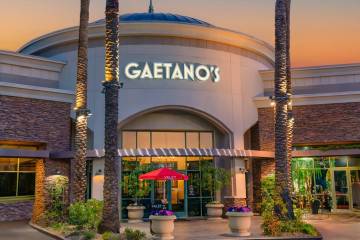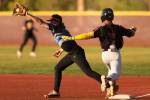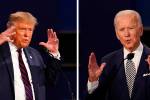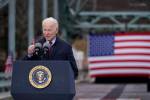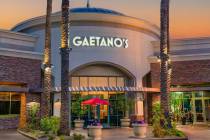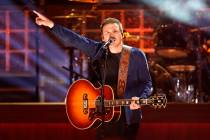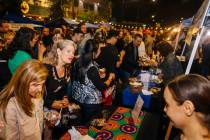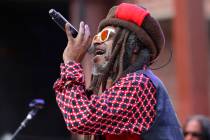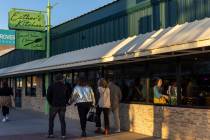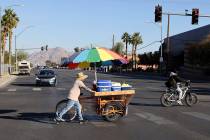Is your food delivery driver required to wear a mask?
When Cathy Brooks’ sushi order arrived at her Fremont Street business on a recent Sunday, she was surprised to see the Postmates driver delivering it wasn’t wearing a mask. Given the strict protocols she’d put in place to protect her own customers and the governor’s mandate to wear masks in public, she was both concerned and surprised. When she asked him from a distance to put one on before leaving his car, he informed her that he didn’t have one.
“I said, ‘What do you mean you don’t have one?’” Brooks recalls of the conversation. “And he said ‘I don’t wear them; I think they’re stupid.’”
To avoid contact, he left the order on the ground. It wasn’t until he’d driven away that Brooks discovered it was incorrect and contained items she couldn’t eat due to dietary restrictions.
Still hungry, she placed a second order from a different restaurant. This time she called in advance to confirm that delivery drivers were required to wear masks when picking up orders. Nonetheless, she says her second Postmates order of the day was brought by a driver who had no mask.
“He said, ‘I don’t know what to tell you. I don’t have one, and I wasn’t wearing one when I got the food.’”
As fear of COVID-19 has crippled the restaurant industry, third-party delivery apps have positioned themselves as a safe way to support your favorite local establishments. Most of those apps have promoted “contactless” options that allow customers to forgo any interaction with their drivers. But what about those who still want to review their orders when they arrive or for some other reason prefer a face-to-face encounter? Can they trust the gig workers assigned to their orders to take basic precautions, like covering their faces?
Maybe not, according to the accounts of some customers and restaurateurs. Even more surprisingly, at least one of the major delivery companies doesn’t even have a mandatory mask-specific policy for its drivers. And customers aren’t the only ones complaining.
Multiple confrontations
At Graffiti Bao, chef/owner Marc Marrone has an exclusive business arrangement with Postmates. His team knows most of the drivers and haven’t had any problems with that service. Nonetheless, drivers from other services, which accept orders for his restaurant without his knowledge, routinely enter the dining room without masks to fill them. Like Brooks, Marrone reports having multiple confrontations with unmasked drivers in a single day.
“Three times, DoorDash drivers came in to place the order and didn’t have a mask, and refused to put one on,” Marrone says. “(It got) to the point where we made them put it on. But one guy walked out and never came back.”
The chef reports that other drivers have attempted to lecture his staff on why they shouldn’t be wearing masks either.
“We actually had two drivers for DoorDash literally try to explain to a 19-year-old cashier, who is just trying to do her job, how wrong she is for making them put a mask on, and how it doesn’t make sense scientifically.”
To be clear, Gov. Steve Sisolak’s Emergency Directive 024 requires wearing a face covering while at work “when interacting in-person with members of the public, when in any space visited by the general public, even if no one else is present (and) when in any space where food is prepared or packaged, for sale, or generally distributed to others,” according to the official guidance provided by the state.
When asked whether this applies to delivery drivers, a spokeswoman for the Nevada Department of Business and Industry explained, “If the delivery person interacts face to face with members of the public, they are required to wear a face covering while doing so.”
Difficult enforcement
Unfortunately, that requirement can be hard to enforce. Customers have no say over who delivers their orders. The Southern Nevada Health District does not oversee delivery services. And because of drivers’ status as independent contractors, some of the large delivery companies take a hands-off approach or limit their stand on face coverings to well-publicized PPE donations, lofty goals and unenforceable recommendations.
When the Review-Journal repeatedly asked Postmates whether the company requires drivers in Nevada to wear face coverings, the company would not specifically address the issue. In response to four specific questions regarding mask use in Nevada, the company supplied a single, two-sentence answer that noted its “Fleet Agreement” contains a provision that drivers “must not violate … obligations under the law.”
With regard to the consequences of violating Sisolak’s order, Postmates vaguely promised that “if we get a credible report of a courier being in violation of the law, we will take corrective action.” As far as what customers or restaurants can do to report a violation, Postmates says: “Merchants and customers who want to report a concern can do so through support on the Postmates platform.”
Weak responses
Brooks used that platform to report both drivers who arrived at her house without masks. She calls the email response “flaccid.”
When presented with similar questions about its drivers, known as “dashers,” DoorDash replied that “Dashers are required to comply with all state, federal and local rules and regulations, and we have a global in-app announcement live on the Dasher app that reminds Dashers to follow their local mask mandates, and that merchants may refuse service to Dashers who are not wearing masks.”
With regard to handling those who might violate the policy, however, the company appears more concerned with reassigning those who disregard the order than disciplining or dismissing them.
“If Dashers violate the guidelines set out by their local authorities, merchants can deny entry and can also make a request that the Dasher be unassigned from their future deliveries,” says DoorDash. It failed to address, however, how customers should handle the issue. And it’s unclear how that policy helps restaurants like Graffiti Bao, which are not officially affiliated with the company but regularly interact with its drivers.
Other delivery companies’ policies are more clear. On May 18, Uber instituted a policy requiring masks to be worn by all drivers and passengers of its ride-hailing service, as well as its Uber Eats delivery drivers, in most parts of the world including Nevada. The company has gone so far as to require drivers to upload a selfie, in a mask, when accepting each job. Customers and restaurants are able to report drivers who don’t wear a mask. And repeat offenders can be dropped from the service.
The other big player in the food delivery game, Grubhub, also has a mask-specific policy:
“Drivers are required to wear a mask while making deliveries and have access to free PPE from Grubhub, including masks and hand sanitizer. If we receive a complaint about a driver not wearing a mask, we have an internal process that includes an investigation and could result in the driver’s contract being terminated with us.”
In addition to contacting specific delivery companies, customers can report safety concerns to the Occupational Safety and Health Administration at https://www.osha.gov/pls/osha7/eComplaintForm.html.
Contact Al Mancini at amancini@reviewjournal.com. Follow @AlManciniVegas on Twitter and Instagram.



